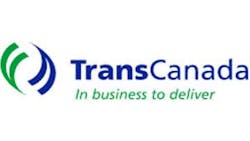TransCanada Plans East-West Pipeline for Tar Sands Oil
TransCanada unveiled plans on Tuesday to build a pipeline to ship oil from Canada's western tar sands to refineries in eastern regions reliant on higher-priced oil imports.
The 4,400-kilometer (2,734-mile) "Eastern Oil Pipeline" would be the first connecting producers in the west who are eager to tap into new markets with consumers in Canada's most-populated cities and industrial heartland in the east.
The conduit would be capable of transporting as many as 850,000 barrels of crude oil per day to refineries in Montreal and Quebec City as well as the Atlantic port city of Saint John, New Brunswick, TransCanada said.
Those refineries currently process about 600,000 barrels of imported oil per day to meet regional energy needs, paying global market rates for foreign supplies of crude oil.
Tar sands output, meanwhile, is heavily discounted because most existing pipelines from landlocked Alberta's tar sands lead to markets in the United States that are increasingly facing a supply glut.
"The Energy East Pipeline could eliminate Canada's reliance on higher priced crude oil currently being imported," TransCanada said in a statement.
The company said it aims to bring the pipeline online in late 2017, converting an existing 3,000-kilometer (1,864-mile) natural gas pipeline to crude oil service and constructing up to 1,400 kilometers (870 miles) of new pipeline.
Three other proposals to bring oil from the tar sands to U.S. Gulf Coast refineries and to two ports on Canada's Pacific Coast for shipping to Asia face stiff opposition from environmentalists, as well as regulatory delays.
If those projects are quashed, an east-west pipeline could become Canada's last opportunity to open up new markets for its burgeoning oil sands output, which officials say is key to the nation's future economic prosperity.
And with U.S. domestic production rising to levels that are forecast to displace imports by 2020, pressure is mounting.
Natural Resources Minister Joe Oliver said the east-west pipeline would address what he called a serious lack of pipeline capacity that is costing the Canadian economy $50 million each day.
Copyright Agence France-Presse, 2013
About the Author
Agence France-Presse
Copyright Agence France-Presse, 2002-2025. AFP text, photos, graphics and logos shall not be reproduced, published, broadcast, rewritten for broadcast or publication or redistributed directly or indirectly in any medium. AFP shall not be held liable for any delays, inaccuracies, errors or omissions in any AFP content, or for any actions taken in consequence.
